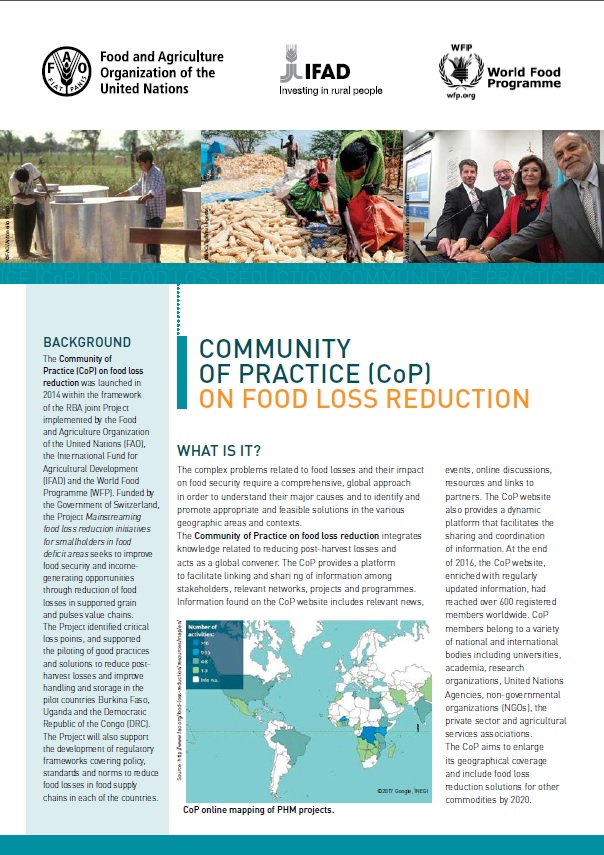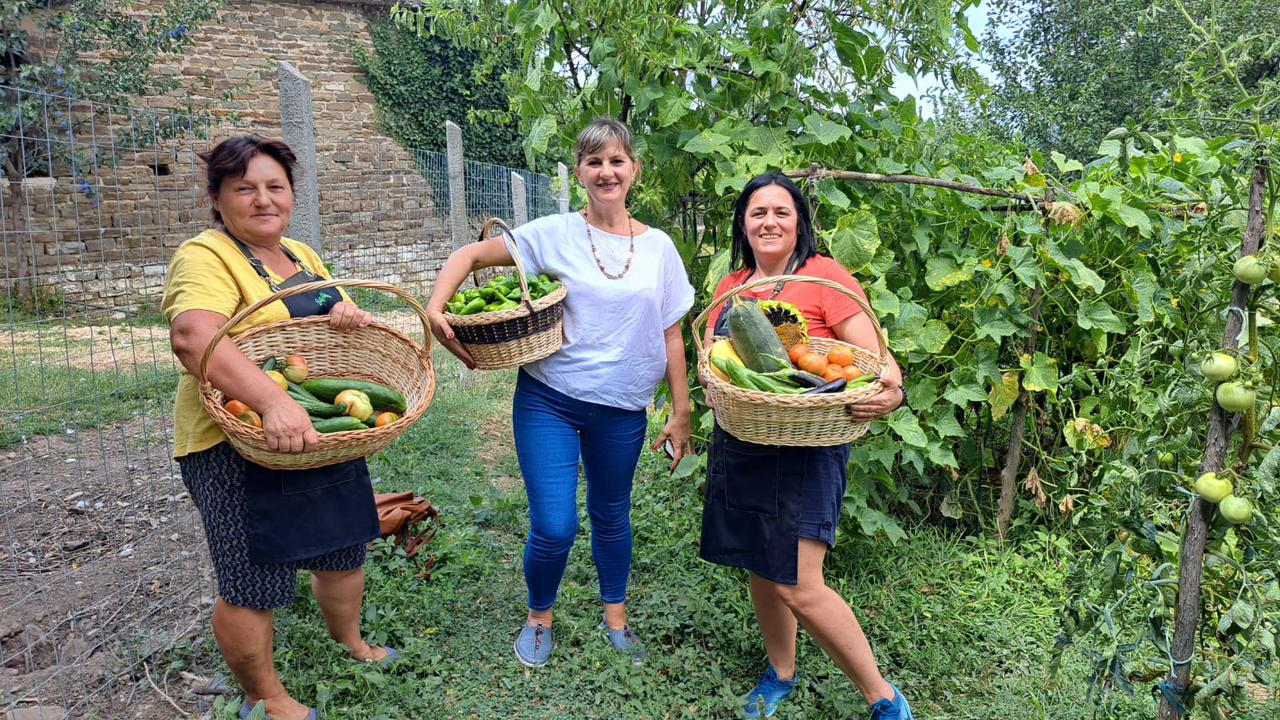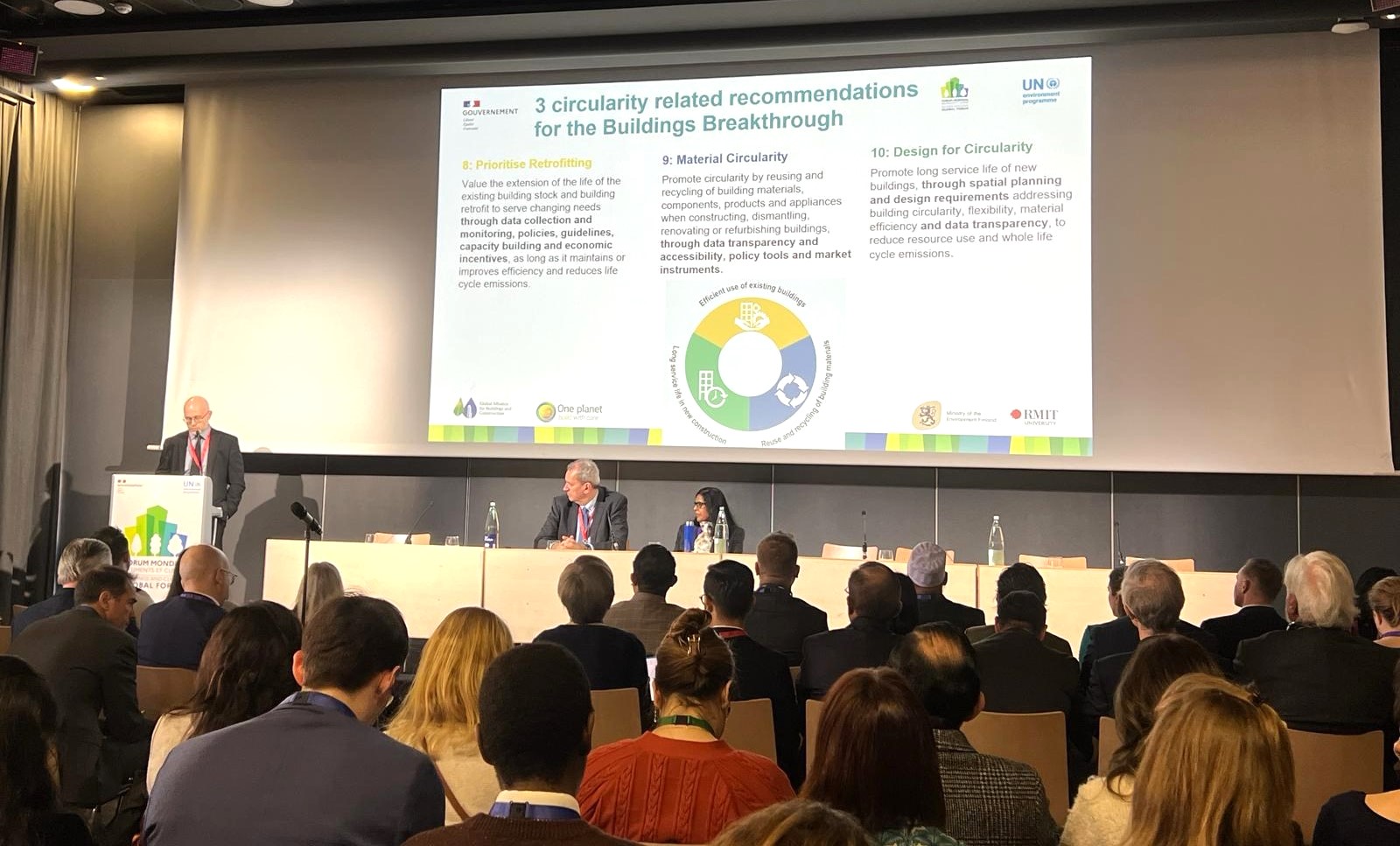Mainstreaming food loss reduction initiatives for smallholders in food deficit areas a joint UN RBA project [AFFILIATED]
It aims to improve food security and income generation of small farmers in food deficit areas through reduction of post-harvest food losses in targeted value chains. By mobilizing the individual strengths of the three agencies, the joint project will have significant impact and influence in stimulating Member Countries to take action to reduce food losses. It will contribute both to the Agenda 2030 and to the Zero Hunger Challenge and supports countries to achieve the Malabo Declaration goal.
The Project has implemented activities in its first phase (2014-2017) at global and national level. A Community of Practice on food loss reduction was launched in October 2014 to share good practices and solutions for food loss reduction. In Burkina Faso, DRC and Uganda has undertaken food loss analysis along the grains value chain and piloted post-harvest reduction solutions. Currently, in its second phase (2017-2020), the project will focus on 1): Knowledge of the magnitude and sources of food losses and the methodology for food loss analyses expanded and good practice options for reducing post-harvest losses are compiled and disseminated through a reinforced, multi-language and fully functioning Community of Practice on food loss reduction (CoP) website; 2): Improved post-harvest management within the targeted value chains are benefiting smallholder farmers in countries through the dissemination of results of food loss analyses and the experience of pilot food loss interventions undertaken in Phase 1; and, 3): Policy and regulatory frameworks (policy, standards) on reducing food losses in food supply chains are developed and validated at national and regional levels. This includes: Contribution to integrating PHL reduction in relevant policies, strategies and actions and investment plans in the pilot countries involved in the ‘Phase 1’, and support to the extent possible other countries who have expressed needs for support.
1. A Global Community of Practice (CoP) on food loss reduction for knowledge sharing, partnering and mainstreaming strengthened.
2. Critical points for food loss reduction identified in selected agri-food supply chains and viable solutions formulated in Burkina Faso, Uganda, and the Democratic Republic of Congo). The critical loss points identified validated in national fora and interventions planned and implemented based on those critical points.
3. Food loss analysis in three pilot countries on: maize, sorghum, cowpea (in Burkina Faso), rice and maize (Democratic Republic of Congo), and maize, oilseeds, beans (Uganda) published and disseminated.
4. Capacity developed and strengthened at key loss points for multi-stakeholders.
5. Assessment of potential solutions to effectively reducing these losses piloted and tested in the 1st phase.
6. Policy and regulatory development supported and enabled through evidence based knowledge provision. Knowledge and capacity developed supported for the preparation of proposals for improved national and regional policy and regulatory frameworks which are conducive to food loss reduction.
Support countries to reduce post-harvest losses towards the achievement of SDG 12.3 and Malabo declaration goals Interested stakeholders can joint the CoP on food loss reduction by registering to the website (www.fao.org/food-loss-reduction)
Image

© FAO, IFAD and WFP, 2018
Project start date
01/07/2017
Project end date
30/06/2020

